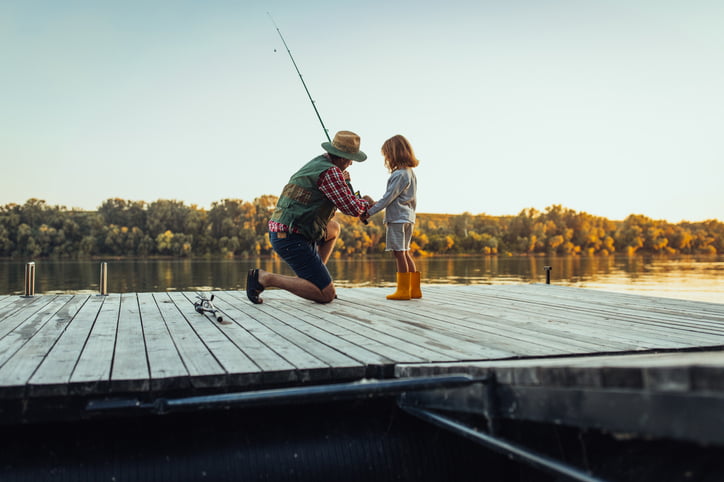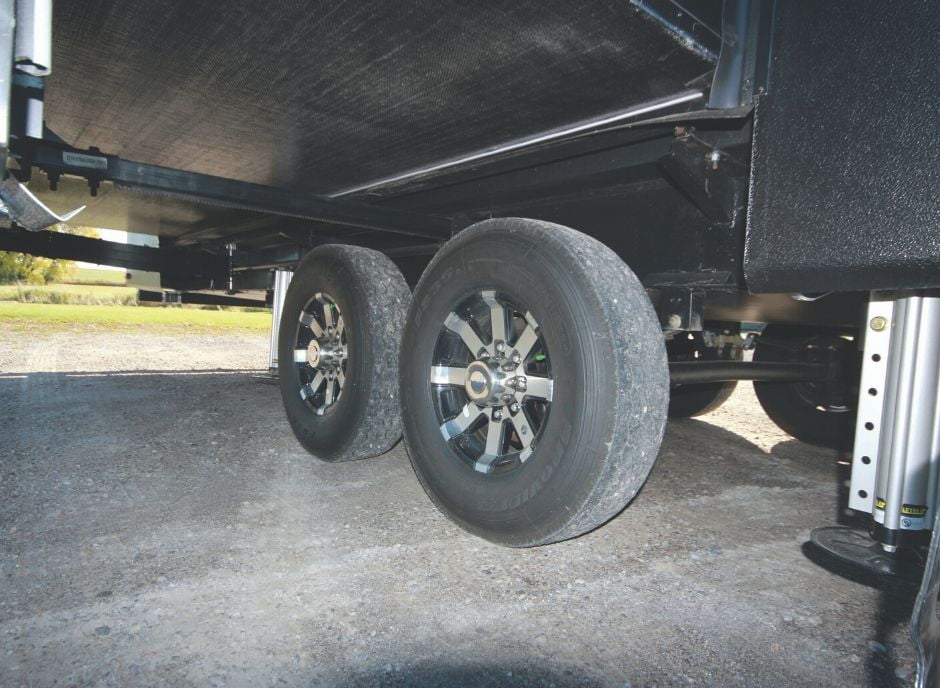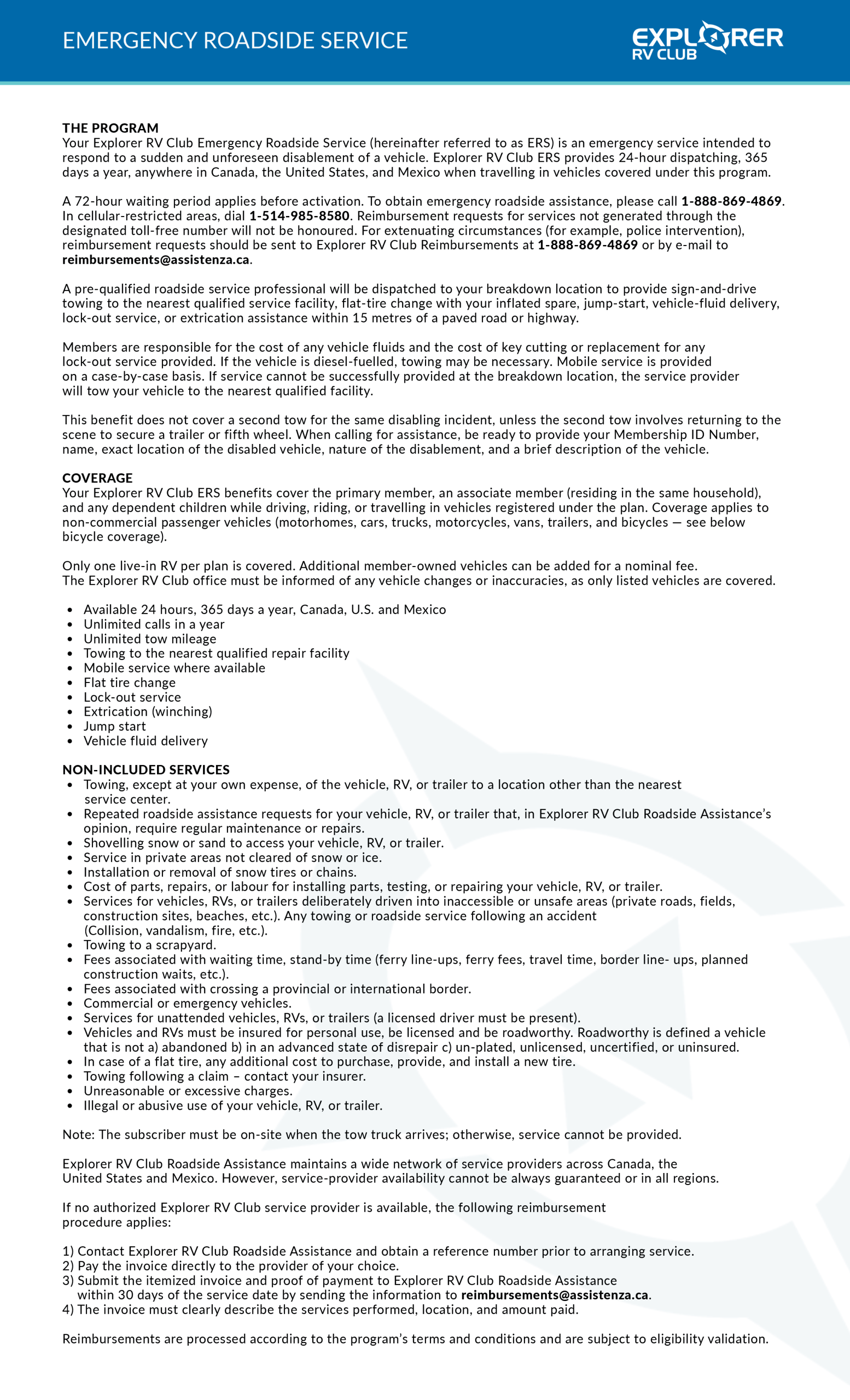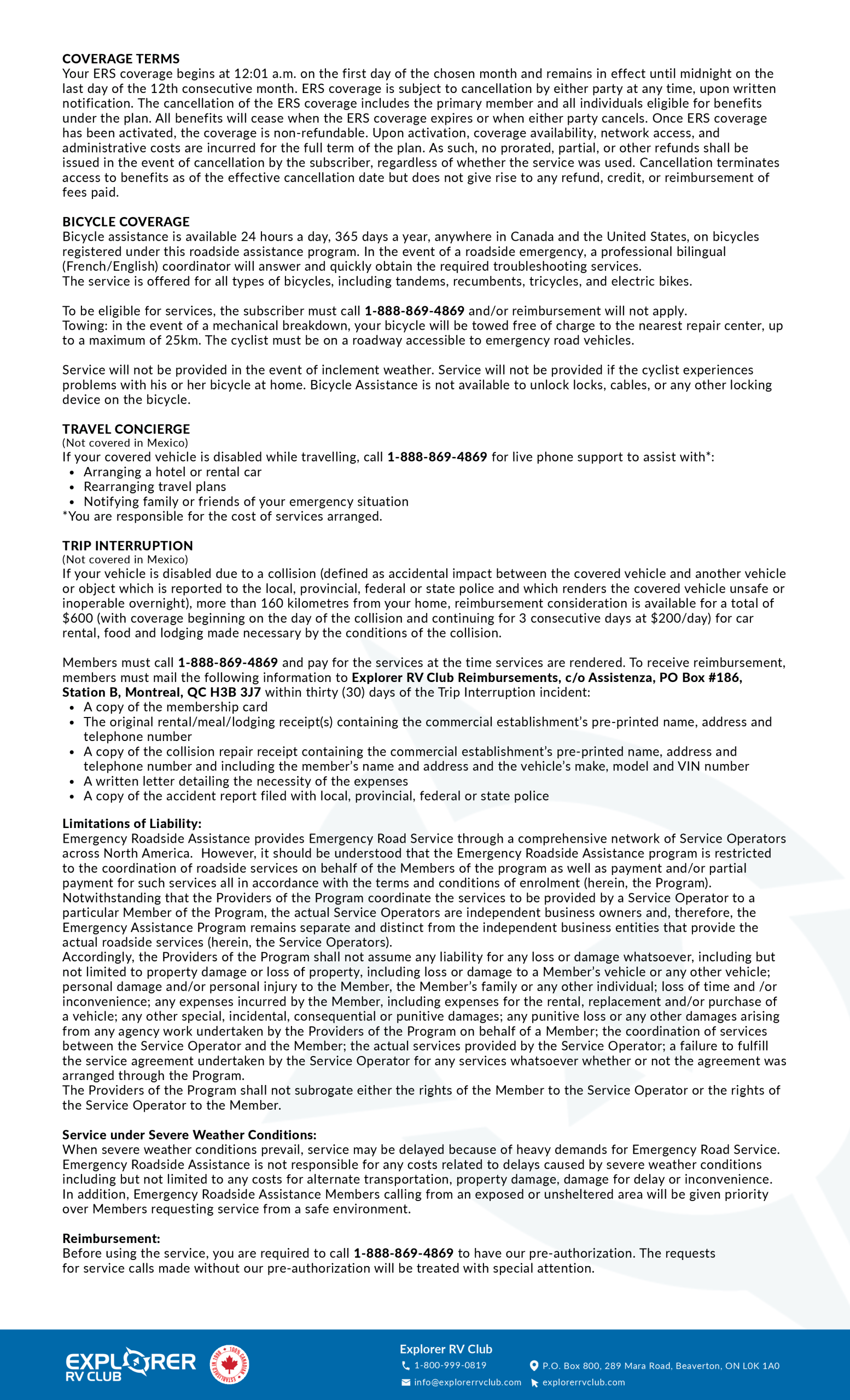For many, camping is a time of relaxation. At the same time, preparing for your trip, driving to your campsite, and setting up camp can be stressful. This is especially true when you’re planning for your first RV trip. Whether camping in the woods, by a lake, at an RV resort with all the facilities, or in the desert with none, here are some tips to help reduce stress.
Plan your first RV trip close to home
My advice for your first RV trip is to go somewhere local. Look at the route ahead of time and ensure there are no low bridges, steep hills, or tight turns. Find a campsite that allows you to “pull through.” Get used to driving your rig. Take right turns wide, and always think about stopping distances. You won’t be able to pull away fast when crossing roads, so allow time to get clear of crossing traffic. If you must reverse, remember your vehicle moves away from the curb before it makes its turn.
Get your RV ready to travel
To avoid a mess when you get to your campsite, use paper towels between plates, secure cupboard doors, and check to make sure nothing is blocking the slides.
Pulling a fifth wheel? Here are some things you should consider:
- Understand how your hitch and anti-sway bars work and use the bar provided to force them into the locked position.
- Make sure the breakaway chains between the truck and trailer are cross connected.
- If you have a sliding fifth wheel hitch to assist when reversing, place the hitch in the towing position, and use the mechanical lock. First, remove the jaw locking pin to allow the jaws to open as you reverse onto the fifth wheel pin. Next, raise or lower the trailer by its landing legs to align the height of the trailer pin with the jaws of the truck’s fifth wheel assembly. Once the jaws have closed, reinsert the locking pin.
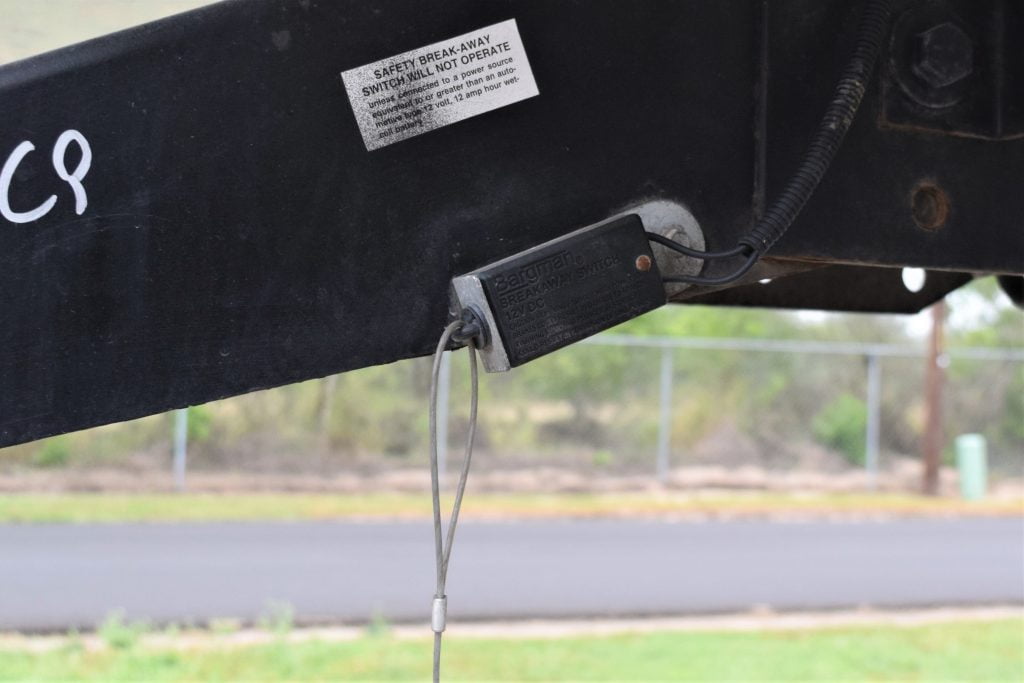
Trailer breakaway switch mounted on the trailer.
- A trailer breakaway system is required for all heavy trailers with electric brakes. This system safely stops the trailer if it becomes disconnected from the towing vehicle while moving. The switch is mounted on the trailer, and its cable must be manually attached to the truck before you leave. If the truck and trailer disconnect, the pin will pull out, and the trailer battery will power the trailer’s electric brakes.
- The wheel blocks should only be removed if the trailer is securely connected to the truck with its emergency brake on.
Before you disconnect the trailer, make sure you block the wheels.
We learned this the hard way. Once while disconnecting our trailer, I was distracted and forgot to block the wheels. As soon as we took the trailer weight off the fifth wheel hatch, the trailer rolled on the almost level concrete pad. Luckily, we weren’t injured, but the trailer dropped 15 cm, putting a nice $8000.00 wedge in either side of my truck’s side panels. I now use wheel rotation cross brackets in addition to the conventional wedge.
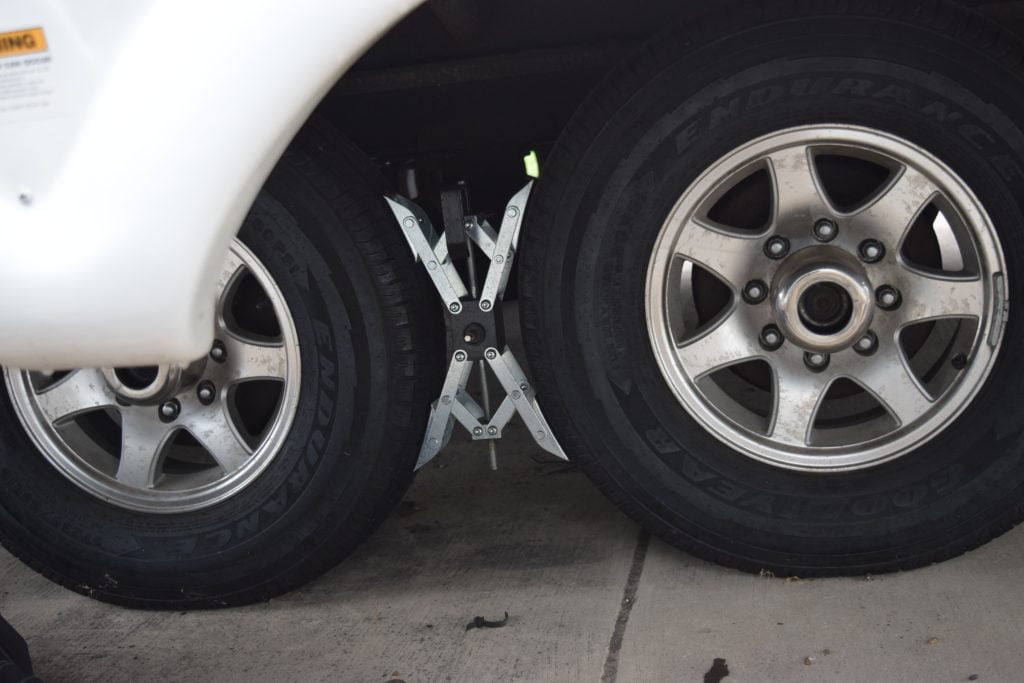
Wheel rotation cross brackets.
Have a set of electrical cables that includes a surge protection device
You should know what amperage you require to operate. Your trailer’s electrical equipment will be designed to work on 120VAC at 15A, 30A, or 50A. Since your preference may not always be available where you’re hooking up, you must be able to adapt your electrical connectors and limit your demand.
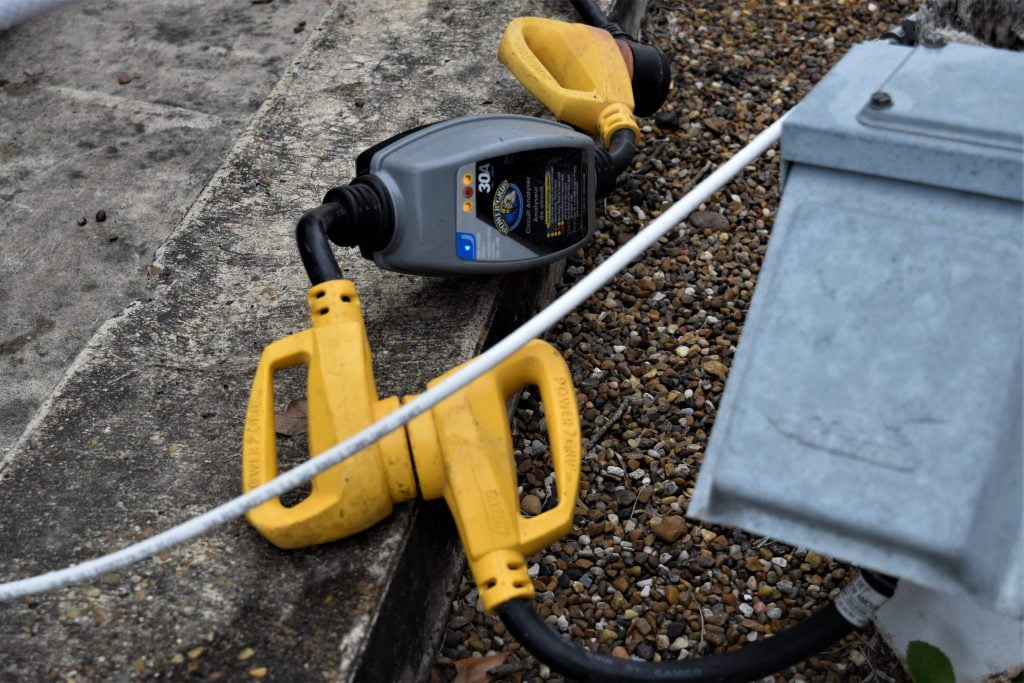
Portable electrical surge protector installed.
Another electrical concern to be aware of is poor wiring at campgrounds. Unfortunately, most RVs don’t come with electrical surge protectors. However, they’re available at any local RV dealership. We use a portable electrical surge and wiring-checking device to confirm the electrical outlets that are safe to use. This has helped prevent damage to our fridge, microwave, and television.
Connecting your RV’s fresh water
Campground water pressure can be high enough to cause damage. A relatively inexpensive pressure regulator can save you hundreds of dollars worth of repair.
For drinking water, always use the water filter provided, an inline filter, or use bottled water.
Before leaving for your first RV trip, learn how to fill your freshwater holding tank. Water is heavy, so only fill it halfway while travelling. When you’re RVing, you have a finite amount of water, especially if you’re dry camping or boondocking. Try to conserve water, so you don’t run out.
Always use a travelling cap on your RV’s sewer pipe connection
A travelling cap is the final barrier, after the tank drain valves, to stop tank content from dripping into the floor. We prefer the travelling cap that has a one-inch hose connector in it. If the black tank drain valve has not been closed properly, when you take the travelling cap off to install your external sewer line, you may be faced with the huge mess Robin Williams experienced in the movie RV. This is not a pleasant experience, and you’ll be responsible for the cleanup.
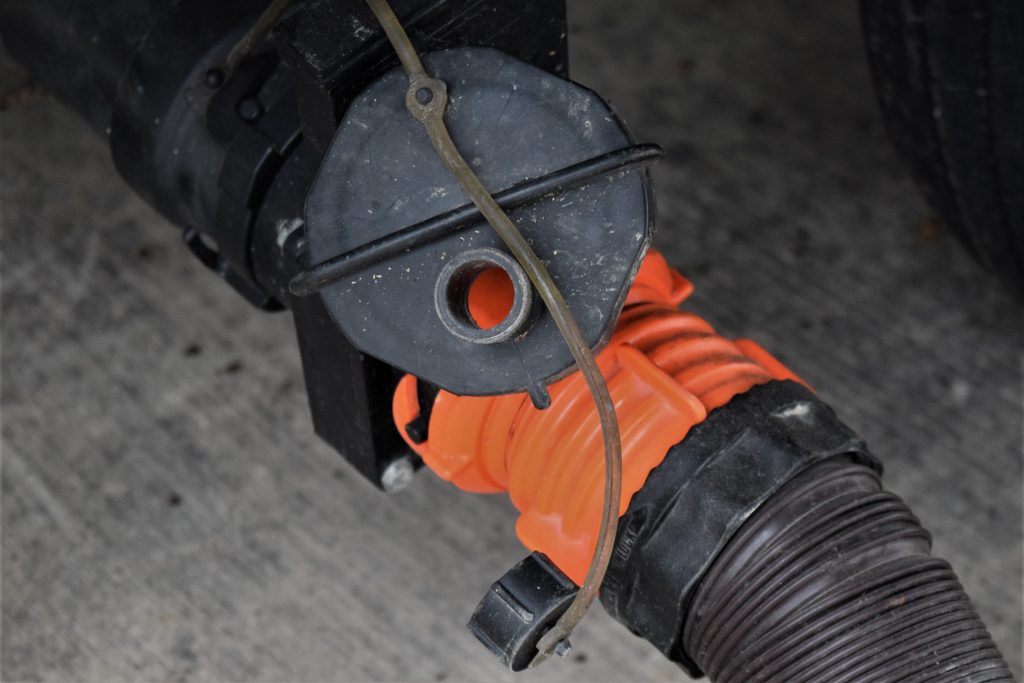
Travelling cap with a one-inch hose connector.
Opening the one-inch hose connector first over a bucket is a controlled adventure and, from personal experience, better practice. Wear disposable gloves and you may want to replace the one-inch cap quickly.
Use an external sewer line support system
Supporting the sewer line will ensure your tank fluids drain downhill and do not build up in your flexible pipe. A flexible sewer line can contain a large volume of sewage, and if tripped over, can spill fluid. Do not camp with drain valves open.
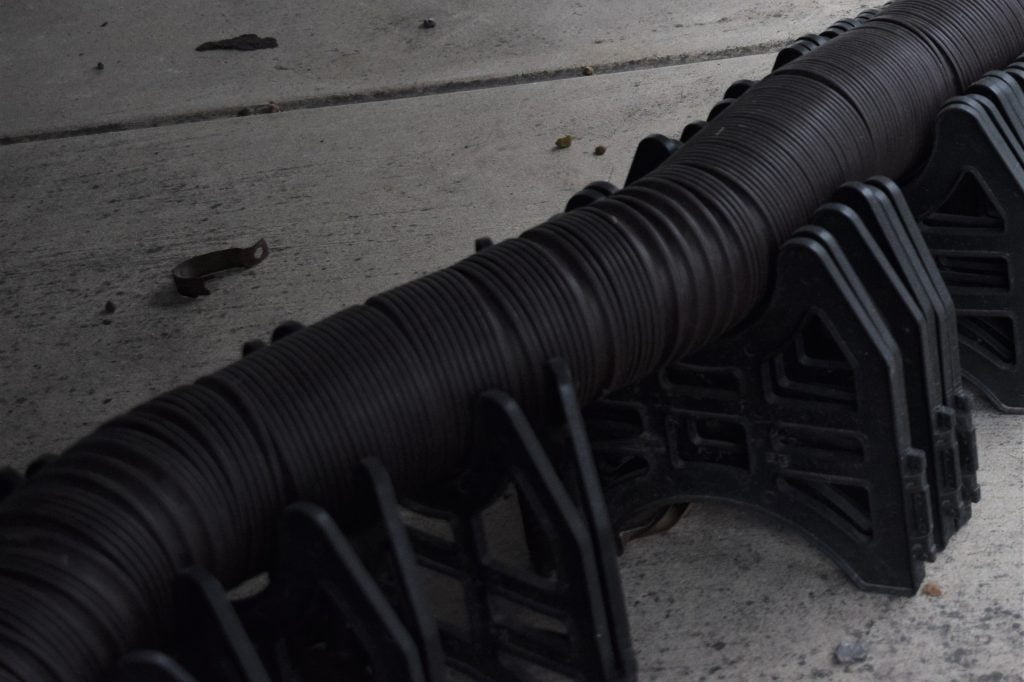
External sewer line support system.
When it comes to the sequence of draining, I recommend starting with the black tank, moving to the kitchen tank, and finishing with the shower water tank. The soapy water from the shower tank is an effective flush. I use a clear elbow at the end of the sewer line to see when each tank has stopped draining. Do not rely on the drain tank gauges. Instead, estimate when your highest-use tank is about half full and drain all three.
RVing is a fun and exciting experience. After 17 years I still make mistakes. If you’re a beginner planning your first RV trip, learn what you can before you set out, and you’ll learn the rest along the way. With more time on the road, camping will become a relaxing experience for you too.
If you’re a beginner, another great way to set yourself up for success is to learn from the pros. Seasoned RVers have experienced it all and are always willing to share lessons they’ve learned on the road, along with some helpful tips. Wondering how you can get acquainted with the RV community? When you join the Explorer RV Club, you not only gain access to exclusive savings, but you also become a part of our family of RV enthusiasts.


